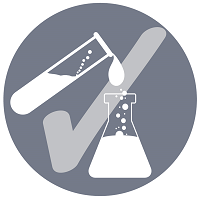Formulation and Delivery
Symposium: Patient-Centric Formulation Development: Implications on Performance and Stability
CAPS: A Novel Co-Processing Approach to Enhance ASD Properties
Monday, November 10, 2025
10:00 AM - 10:30 AM CT
Location: Stars at Night B2/B3

Michael Braun, PhD (he/him/his)
Scientific Director
Boehringer Ingelheim Pharma GmbH
Biberach, Baden-Wurttemberg, Germany
Speaker(s)
Increasing number of new chemical entities (NCEs) in drug development pipelines are BCS class II or IV which pose significant challenges for developability of a bioavailable drug. Amorphous solid dispersions (ASDs) prepared via hot-melt extrusion (HME) and spray drying are among the most commonly used strategies to enhance the solubility and bioavailability of poorly water-soluble compounds. However the material properties of ASDs can present formulation and processing challenges in drug product manufacturing. In this work, we introduce a novel Controlled API-Polymer Solidification (CAPS) technology for a cost-effective preparation of ASDs with superior physical properties, including improved density, flowability, and particle size distribution. These enhanced properties facilitate streamlined drug product manufacturing, enabling direct compression into tablets without additional processing steps. In-vitro dissolution-permeation system used to predict ASDs performances, as well as in-vivo pharmacokinetic (PK) evaluations, demonstrated that CAPS-prepared ASDs exhibit bioequivalence to spray-dried formulations. This study highlights the advantages of CAPS as an alternative ASD manufacturing approach, offering enhanced physical properties and simplified downstream processing compared to conventional ASD processes.
Learning Objectives:
- Upon completion, participant will know the background of the CAPS technology and how it offers clear advantages over Spray-Drying to improve formulation of poorly soluble APIs
- Participant will learn what are the key aspects of ASD development are
- Participant will learn how non-compendial in vivo predictive tools can be used to streamline ASD formulation development

